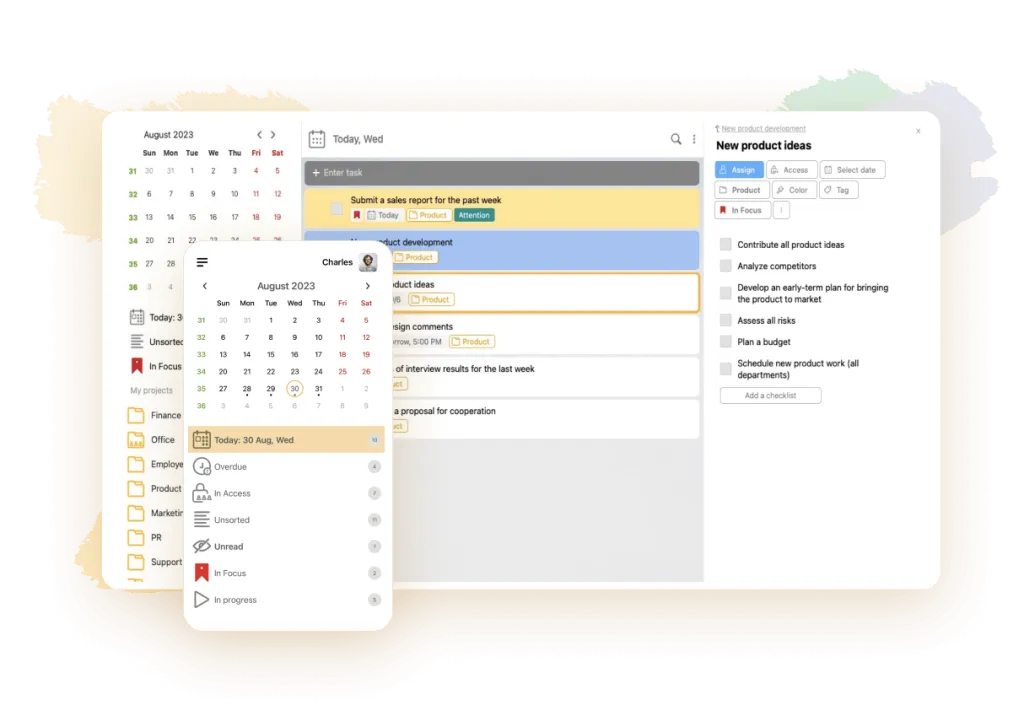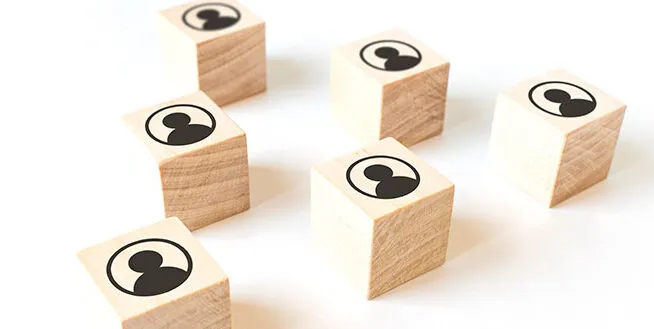
Ted Scott
October 25, 2023
Until recently, the main document for a job seeker when applying for a job was an educational diploma corresponding to the position for which he or she was being employed. But today, most employers do not only focus on the professional experience and skills of their future employees. They are interested in the personal characteristics of applicants or soft skills. They directly influence the employee’s prospects in the company, showing how he or she solves production tasks, communicates with other people, and makes decisions.
What it is

Applicants for vacant positions are usually interviewed several times during the hiring process. At the first meetings, general questions unrelated to the main duties are asked. Often the applicant is asked to tell a free-form story about himself or herself. This is how soft skills are assessed. What is it in simple words? This term comes from the English language and literally translates as “flexible or soft skills”. That is, character traits, individual features of a person, not directly related to the profession, but important for future work. For example, communication skills, the ability to interact with other people or stress resistance.
The popularity of teamwork dictates its own conditions on the labor market. Employers are interested in attracting responsible, active specialists who are able to negotiate with partners, argue their position, and work effectively in a team. Flexible skills simplify the work with information, help to feel confident in their professional sphere, make life full and interesting.
Soft skills are equally important for a sales manager, designer, marketer or project manager. They need to be developed by teachers, freelancers, and researchers. Flexible skills are useful in all fields. They are formed in childhood and are directly related to emotional intelligence. And this is confirmed by various sociological studies. For example, scientists from Harvard, Stanford and the Carnegie Foundation have proved that developed soft skills determine 85% of a person’s success in a profession, while hard skills, such as professional experience and technical knowledge, only 15%.
This trend is related to the development of modern technologies. Due to their constant modernization, academic knowledge quickly loses its relevance. Therefore, a company is interested in hiring an employee who learns quickly, adapts easily to various situations, finds non-standard solutions, and does not pass over difficult situations. His past academic achievements are of no particular importance.
Ideally, soft and hard skills should complement each other. This makes it possible to easily and quickly solve any tasks, including quite complex ones. For example, a graphic designer, in addition to hard skills, such as mastery of Figma, Sketch, and Adobe Photoshop tools, will need empathy, communication, and creative thinking.
What are the benefits of developed soft skills

Flexible skills help in all areas of life. They are necessary for communication with relatives, friends, teachers, colleagues. They influence the ability to adapt to different situations (for example, when moving to a new place of residence), to find contact with strangers, to cope with difficulties more easily and to be ready for changes.
They are also useful:
-
When looking for a job. Any company seeks to get a non-conflict specialist who is able to find a common language with other people, positively influencing the immediate environment.
-
In the process of labor activity. In any company, employees have to constantly communicate with their superiors, colleagues, clients and business partners. Therefore, regardless of their position, experience, and specifics of work, it is important to correctly communicate their position to others, argue it, and be able to negotiate.
Developed soft skills provide the following advantages in life and business:
-
Increase the level of professionalism;
-
Improve personal productivity;
-
Ensure time management;
-
Help you work effectively in a team of any size;
-
Provide a climb up the career ladder;
-
Optimize workflows;
-
Reduce stress levels.
Types and groups of soft skills

Globally, soft skills fall into several major groups:
| Communicative | Social | Self-organization | Managerial | Research |
|---|---|---|---|---|
| Ability to connect and communicate with others. Ability to argue their position in discussions in a reasoned manner. Business Correspondence. Competent speech, self-presentation. Logicality of actions, ability to analyze one’s actions and draw appropriate conclusions. | Teamwork. Understanding one’s role in the team. Conflict management, decision-making in non-standard situations. Respect and empathy for others in the workplace. Emotional Intelligence. | Time and resource planning. A desire for learning, development. Self-motivation, keeping your spirits up. Resilience to stress, quick adaptation to changing situations. Determination, understanding of one’s strengths and weaknesses. | Analyzing and predicting results. Micromanagement. Decision Making. Responsibility for self and others. | Expanded horizons, a lively mind, a healthy curiosity. Creativity. Ability to work with information.. |
To become a sought-after specialist in any industry in the short term, it pays to develop the following skills:
Communication
This skill is necessary to establish contacts, to fulfill professional and life tasks. It consists in the exchange of information, experience, knowledge. It includes:
-
Business communication (this includes correspondence with work colleagues, clients or management, and the ability to negotiate to achieve certain goals);
-
Public speaking (the ability to express oneself clearly and competently).
To develop these skills, it is important to communicate a lot. And not for nothing, but for a specific purpose: to negotiate, negotiate with suppliers or customers, give presentations or lectures, participate in discussions and business games.
Critical thinking
It is a balanced approach to the processing and consumption of any information. Being in a continuous flow of information, it is difficult to understand where in it is the truth and where is a lie. As a result, the risk of becoming a victim of someone else’s manipulations increases. Therefore, it is important to learn to critically evaluate information coming from outside, to be convinced of its reliability, to look for cause-and-effect relationships and draw the right conclusions. For this purpose, it is necessary to develop observation and logic.
Customer focus
That is, identifying the needs of your audience in order to meet them quickly. For example, delivery of an order to the customer’s address. Your customer will save time and feel cared for. And you will get a loyal client who will turn to you more than once. This will help to compete more effectively in the market of goods and services. Systematic analysis of the target audience will help to develop it.
Project Management
In essence, any endeavor a person undertakes is a project. Whether you are building a house, going to university, or going on vacation, you are undertaking a project. It also involves other people: clients, helpers, family members, or government agencies. The person managing the project holds all the levers of this complex system. It is up to him or her to decide what the project will be and what the outcome will be.
To develop the skill, it is important to learn self-organization. Consider each task as a project, designating in it the goal, deadlines, and stages of fulfillment. You should also strive to optimize your projects. If, for example, you are often late for work, prepare to leave in advance or think of a shorter route taking into account traffic jams.
Mentoring
When getting a job after training, many professionals face problems due to lack of practical knowledge. In reality, they are required to have completely different skills from those they received at university. A tutor or mentor can help them adapt to new conditions and become competitive in the labor market. He or she draws up a training plan and monitors the results. He or she adjusts training depending on progress. If you become a mentor, you will be able to share your knowledge and professional skills with other team members and help the team adapt to new tasks or projects.
To develop your mentoring skills, develop a development plan for yourself. Think about what knowledge needs to be replenished and “pumped up”. Track the results, mark your progress. Having mastered the art of managing your own learning processes, you can offer your colleagues to become their personal mentors. In this way you will help them and sharpen your skill.
Non-violent communication
This method is based on clearly conveying information to the interlocutor in order to get something in return. You tell him some fact, tell him what you need, formulating a request. This way you will get what you need from a person without hurting him. Learn to identify and stop violent communication in a timely manner.
The skill is necessary for negotiations, collective discussions, communication with relatives and colleagues. The main thing is to be persuasive, not to overdo delicacy and softness, as this will lead to loss of authority and a feeling of distrust towards you in the interlocutor.
To develop this ability, you should try to understand the people around you, treat them with empathy. Regular attendance of specialized trainings will help to form this skill.
Decision-making
That is, the ability to choose the best option from those offered. Thanks to this skill, you will achieve your goals at a lower cost, quickly, promptly, without hesitation. For example, you are offered two good jobs at the same time. If you take a long time to decide on the choice - you can miss both. Therefore, you need to make an informed and well-considered decision quickly.
You can develop this ability by developing farsightedness: the ability to see the maximum number of options. Prioritize your goals, cases, tasks, choosing the best of the possible. In case of difficulties at work, address the manager not with a problem, but with a specific variant of its solution.
Working with problems
In difficult situations, you can complain about life to those around you or take appropriate action to resolve them. Once you have developed the skill, you will easily cope with any problems in life or at work. To do this, formulate your main problems, coming up with two or three dozen solutions for each of them. Set deadlines for which they need to deal with them. If during this time you can not cope with the problem, think of new options for its solution. Remember: there are no problems that cannot be solved.
Emotional intelligence
This is the ability to read people’s emotions, moods, and motivations with the ability to control them. With the help of this skill you will find it easier to communicate, to find mutual understanding with other people. For example, if during your presentation you notice that listeners feel bored, tired, you can take a break.
To develop this ability, you need empathy for yourself and others. Pay attention to your own and other people’s emotions, understand what events they are associated with. Control yourself, base your decisions on your observations.
Learnability
That is, the ability and desire to learn new information, using it in future life to solve everyday tasks. Knowledge is transformed into skills, and those, in turn, into skills. When learning, it is important not to be limited to theory, but to use the information obtained in practice.
To become a learner and develop the ability to manage knowledge, create a personalized learning plan for yourself by choosing areas that will be useful to you in real life. Live, try out concepts and theories. For example, implement time management techniques and tools and put them into practice.
Working under uncertainty
The modern world is described by the acronym VUCA, which stands for the following:
-
V - volatility;
-
U – uncertainty;
-
C – complexity;
-
A – ambiguity.
In such conditions one has to be adaptive, flexible to changes, and competently manage available resources. This skill is associated with the technique of stress management - managing oneself or other people under intense stress, limited time or force majeure.
To develop this ability, you need autonomy. You need to look for non-standard ways out of situations, try new tools and approaches, do not be afraid to change the usual format of work and communication, follow trends and choose what suits you best.
Other examples of soft skills
-
Lean-technique or lean manufacturing, which is the ability to identify and eliminate any waste by improving the processes of creating tangible or intangible things. By managing your workload correctly, you can prevent burnout at work by getting more done in less time.
-
Ecological thinking is an ability related to responsibility for one’s actions and a positive worldview. When you do what you love, you experience joy and pleasure, and you are not afraid of problems. Their occurrence does not make you panic, but encourages you to make the right decisions.
-
Self-analysis of deeds, behavior, actions is necessary for their evaluation and correct choice of further direction. Knowing yourself, you will behave consciously, make rational and balanced decisions.
Soft Skills Assessment Tools

Various methods and tools are used to assess soft skills. The most common of them include:
-
Free psychological tests freely available on the Internet. With their help you can find out the level of your communicative, organizational abilities, find out how developed your emotional intelligence is.
-
Five-factor personality questionnaire 5PFQ. Five criteria are used to describe personality: benevolence, extraversion, neuroticism, openness to new things, conscientiousness.
-
Youthpass Certificate. Used for self-assessment of changes in eight essential skills acquired during the course of study.
-
Dreyfus model. Its essence is as follows: in the course of work a person passes through 5 stages: beginner - advanced beginner - competent employee - experienced - expert. After skills assessment, the specialist is assigned the appropriate level.
How to develop your flexibility skills
Soft skills are not character traits that you are born with. They are the ability to work effectively and confidently within the framework of a position. They are professional skills that require no less attention than hard skills. The process of soft skills development is individual for everyone. It depends on a person’s abilities, personality traits, his or her need for certain qualities and knowledge. For this purpose it is necessary:
-
Determine what you will develop;
-
Select and research related information;
-
Constantly practice to consolidate the ability;
-
Set precise goals for yourself and try to achieve them in life.
To pump soft skills, for example, you can use the Kolb Cycle. This is an endless exploration, involving constant actions with tracking results that are repeated until the skill is perfected.
The following methods and rules will help in the development of soft skills:
-
Engage in the arts, improve creativity, intelligence with puzzles.
-
Use the Eisenhower matrix and SMART methodology to set goals.
-
Apply SWOT analysis for professional planning.
-
Attend trainings, courses, and workshops that teach the skills you are interested in.
-
Practice introspection, self-study.
-
Participate in teamwork.
-
Take an example from successful and effective people.
-
Draw the right conclusions from critical remarks, respond appropriately to them.
-
Keep a positive attitude towards life, be calm and balanced.
-
Learn to respond quickly to changing circumstances.
-
Get yourself accustomed to multitasking.
-
Be open to new things, create your own projects.
-
Try to get rid of bad habits.
-
Study specialized literature on the topic of self-development.
LeaderTask for softskills development

To improve self-discipline, rational time management, it is necessary to master the techniques and tools of time management. With their help it is easier to set correct goals, formulate tasks, monitor progress and quality of their fulfillment.
It is convenient to use the LeaderTask task manager to manage personal and work projects. With its help, you can easily structure any tasks, prioritize them by priority and urgency, so that you can concentrate on the important things, without wasting time on trifles. Set realistic goals, break them down into individual stages. You can monitor your achievements on an informative graph or kanban board.
In app you can plan events and meetings, which will be immediately reflected on the calendar, create notes, share information with other users, communicate in a convenient chat. Develop useful skills, sharpen habits using the recurring tasks function.
The service is compatible with all digital platforms, has a full set of time management tools built in, and synchronizes with many popular programs and applications. It supports agile, scrum and waterfall methodologies. Works without internet connection.
Conclusion
No matter what industry you work in, developing flexible skills has a positive impact on anyone’s career and personal life. A highly professional performer with strong soft skills has every chance of moving up the career ladder quickly. Otherwise, he or she will remain an ordinary employee, despite his or her vast experience and talent.
It is impossible for a freelancer or small entrepreneur to survive in market conditions without the ability to negotiate, take responsibility for his work, think creatively and creatively. Recruiters pay more attention to flexible skills when selecting candidates for managerial positions.
You can develop soft skills with the help of special trainings and courses. Or you can read the relevant literature devoted to the development of different skills, or you can study on your own, using applications-assistants for self-control, for example, the LeaderTask personal organizer. To achieve the best results, it is desirable to combine these methods. Information coming from different channels will be mastered better. The most important thing is to remember to analyze the experience, practice self-reflection and evaluate the results.







